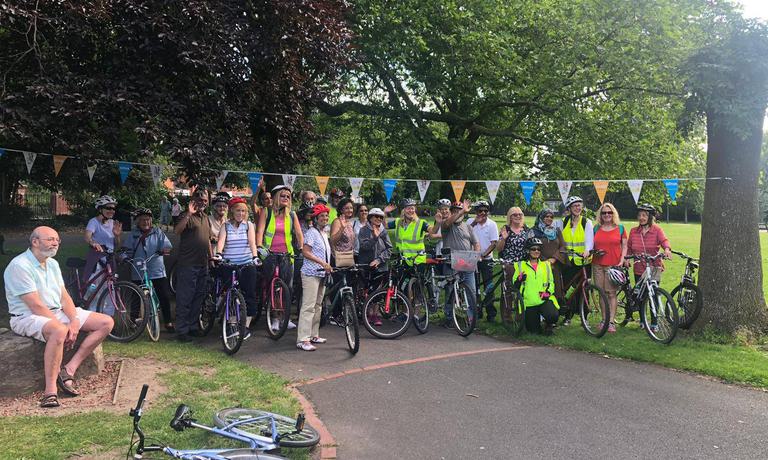Education and skills have a big impact on our health, and your level of education can even affect how long you might live. Education is tied in with your job opportunities, where you live and the amount of control you have over your life. These all affect your health. Evidence shows a strong link between education and health, even when other factors like income are taken into account.
Not everyone has an equal chance of a good education. Inequalities in early childhood get worse during school years, meaning that some people, particularly people living in neighbourhoods experiencing disadvantage, come out of the mainstream education system without getting what they need. Young people from some minoritised groups face additional barriers to education and training. For example, migrants and refugees need to learn the language before they can start learning other skills, and people with learning disabilities may need tailored training and support.
Early years services such as parent and toddler clubs can give children a better start in life, while adult training or mentoring schemes can help to close skills gaps. This works well in informal community settings where people can share and develop skills together in a supportive and open environment.
Improving your prospects by gaining qualifications is just one benefit, because lifelong learning is not just about employability. It’s also about developing life skills such as communication and problem solving. The more you learn – whatever the subject – the more you grow your confidence in yourself, your abilities and your voice. This in turn helps you to take more control over other aspects

Stating the facts
- Children from poorer families are much more likely to have lower levels of development in the first year of school than children from more affluent families.
- By the age of 30, people with the highest levels of education are expected to live four years longer than those with the lowest levels of education.
- 85% of people who participated in an Active Communities funded project said they had learnt and developed new skills.
Our work on education and skills
Many of the projects we fund focus on a diverse range of adult education and skills including digital skills, English as a second language, cycling and bicycle mechanics, and cooking and growing food. We also fund projects that support early years, such as parent and toddler clubs. Evidence from our evaluations and project reports shows that people actively involved in projects have gained skills in communicating, influencing and negotiating with other organisations.
It has been more than ten years since the Richard Review of Apprenticeships, and we call on the next government to commit to reviewing and reforming the system, learning first hand from young people and employers on how to improve the system. The goals of this review should be to expand access to a wider range of industries, increase the proportion of apprenticeships at entry level, and ensure these are accessible to young people in all communities across the UK. Read more in our Community manifesto for health justice.
Games can teach you advanced things, for instance, how an economy works. When you’re playing a game with multiple people you’ve got to learn to communicate well, to work as a team or to lead and organise a team. There are a lot of things you can learn through playing games and it’s a really great and accessible way to build new skills
David Ben Hollingworth, The Fort Lowestoft


Aaina Community Hub
The project provides emotional and practical support to women living with multiple levels of disadvantage in the community. Participants can access immediate support to deal with grief and poor mental health as well as learn new skills such as computing.
The research on education and skills and health.
Health Equity in England: The Marmot Review 10 Years On, p36-57. UCL Institute of Health Equity, 2020.
State of the Nation 2021: Social mobility and the pandemic, Social Mobility Commission, 2021.
A healthy foundation for the future. The final report from the Young people’s future health inquiry, The Health Foundation, 2019.

